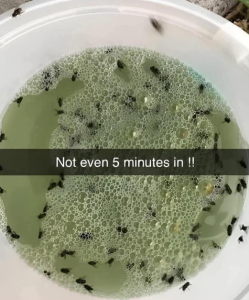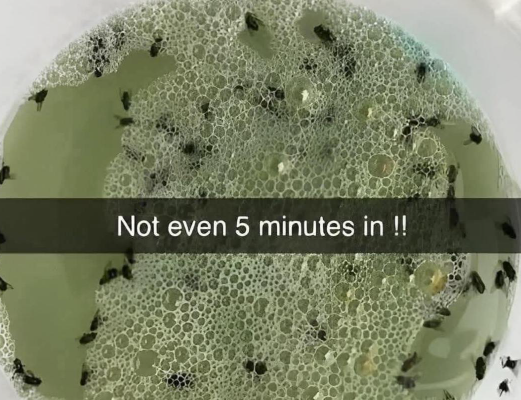
🌿 DIY Natural Bug Repellent to Keep Insects Away!
Insects are nature’s tiny messengers—pollinators, decomposers, and sometimes, uninvited guests. Whether you’re hosting a garden gathering, hiking through the woods, or simply enjoying a quiet evening on your porch, bugs can disrupt the moment. But chemical repellents often come with harsh smells and questionable ingredients. What if you could protect yourself using nature’s own defenses?
Let’s explore how to make your own natural bug repellent, blending science, scent, and a bit of sensory ritual.
🧪 Why Go Natural?
Commercial repellents often rely on DEET, a powerful chemical that’s effective but can irritate skin, harm aquatic life, and damage synthetic fabrics. Natural alternatives offer:
- Gentler ingredients for sensitive skin
- Biodegradable formulas that won’t pollute
- Customizable scents that feel like aromatherapy
- A chance to reclaim ritual—turning protection into self-care
🌸 Key Ingredients: Nature’s Defenders
Here are the botanical heroes that repel bugs naturally:
1. Essential Oils
These concentrated plant extracts are the backbone of any DIY repellent.
| Essential Oil | Insects Repelled | Notes |
|---|---|---|
| Lemon Eucalyptus | Mosquitoes | CDC-approved alternative to DEET |
| Lavender | Mosquitoes, moths | Calming scent, gentle on skin |
| Peppermint | Ants, spiders, mosquitoes | Cooling effect, strong aroma |
| Citronella | Mosquitoes | Classic outdoor candle scent |
| Tea Tree | Ticks, mosquitoes | Antiseptic properties |
| Geranium | Ticks, flies | Floral and uplifting |
2. Carrier Liquids
Essential oils must be diluted before applying to skin.
- Witch Hazel: Astringent and soothing
- Distilled Water: Gentle and neutral
- Apple Cider Vinegar: Adds extra repelling power
- Fractionated Coconut Oil: Moisturizing and lightweight
🧴 Basic Bug Spray Recipe
Here’s a simple, effective recipe to start with:
Ingredients:
- 10 drops lemon eucalyptus oil
- 10 drops lavender oil
- 10 drops citronella oil
- 2 tablespoons witch hazel
- 2 tablespoons distilled water
- Optional: 1 tablespoon apple cider vinegar
- Small spray bottle (100 ml)
Instructions:
- Add witch hazel and water to the spray bottle.
- Drop in your essential oils.
- Shake gently to mix.
- Spray on exposed skin, clothing, or around doorways.
Shelf Life: About 2–3 weeks. Store in a cool, dark place.
🕯️ Ritual Variations: Customize Your Blend
Want to turn your bug spray into a personal ritual? Try these variations:
🌙 Evening Calm Blend
Perfect for twilight gatherings or bedtime protection.
- Lavender
- Chamomile
- Vanilla extract
- Witch hazel + rose water
🌞 Adventure Blend
For hikes, camping, or jungle treks.
- Lemon eucalyptus
- Peppermint
- Tea tree
- Apple cider vinegar + water
💐 Garden Party Blend
Repels bugs while smelling like a bouquet.
- Geranium
- Lemongrass
- Lavender
- Witch hazel + distilled water
🧼 Other DIY Repellent Forms
Bug spray isn’t the only way to protect yourself. Try these formats:
🕯️ Bug-Repelling Candles
Melt soy wax, add citronella and lavender oils, pour into jars with wicks. Light them during outdoor meals.
🧼 Herbal Bug Balm
Mix beeswax, coconut oil, and essential oils. Rub on wrists, ankles, and neck.
🧣 Scented Cloth Strips
Soak cotton strips in your blend, hang near windows or wear as bracelets.
🧠 Science Behind the Scents
Insects rely on scent trails and chemical signals. Essential oils disrupt these pathways:
- Mosquitoes detect carbon dioxide and lactic acid—peppermint and eucalyptus mask these.
- Ticks are repelled by geraniol and citronellol, found in geranium and citronella.
- Flies dislike strong herbal scents like basil and rosemary.
By layering these oils, you create a sensory shield that’s both protective and pleasurable.
⚠️ Safety Tips
- Always patch test before applying to skin.
- Avoid spraying near eyes or open wounds.
- Reapply every 2–3 hours for best results.
- Not all oils are safe for babies, pets, or pregnant people—consult a professional if needed.
🌍 Communal Wisdom: Bug Repellent as Ritual
In many cultures, repelling insects is more than survival—it’s ceremony. Smudging herbs, burning resins, wearing protective garlands. Your DIY spray can be part of a daily ritual:
- Spray before stepping outside as a gesture of self-protection
- Share your blend with friends as a gift of care
- Name your recipe—like “Solstice Shield” or “Rainforest Whisper”—to honor its intention
🧪 Bonus: Natural Bug Trap Recipe
Want to lure bugs away instead of repelling them? Try this:
Fruit Fly Trap:
- Small bowl
- 1 tablespoon apple cider vinegar
- A drop of dish soap
- Cover with plastic wrap, poke holes
Flies enter, but can’t escape. A gentle way to reclaim your kitchen.
🌱 Final Thoughts
Making your own bug repellent isn’t just about avoiding bites—it’s about reclaiming agency, connecting with nature, and transforming a mundane task into a moment of care. Whether you’re blending oils in your kitchen or misting your wrists before a walk, you’re participating in a quiet ritual of protection and presence.
So next time the bugs come buzzing, meet them not with fear, but with a handcrafted shield of scent and intention.

